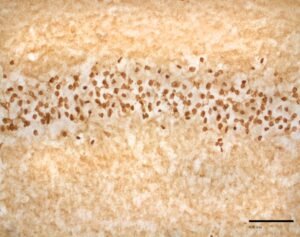The proposed work will be divided into two overlapping and complementary research directions: a) ex vivo studies and b) in vivo studies. In the ex vivo studies, we will evaluate the ability of recombinant apoE isoforms and variants that will be provided
mostly exogenously to brain cells, to affect the Aβ production or accumulation, phosphorylation of tau, inflammatory responses as well as cell membrane fluidity and lipid composition, in the presence or absence of free fatty acids. We will also evaluate the ability of apoE isoforms and variants to perform non-canonical functions in the brain such as the translocation to the nucleus, the interaction with the DNA and with cofactors, and the activation or repression of transcription by transient transfections in brain microglia. In the in vivo studies we will use as a base AD mouse model, the apoE targeted replacement mice (apoETR), in which the endogenous mouse apoE gene has been replaced by the human apoE3 or apoE4 genes. These mice will be used either as stand-alone or after crossing with mouse models of metabolic diseases such as hypertriglyceridemia or non-alcoholic fatty

liver disease in order to investigate the effect of these comorbidities on AD pathogenesis and progression. Brains of the apoETR mice will be used to obtain apoE-isoform specific transcriptomes and proteomes in the brain.
